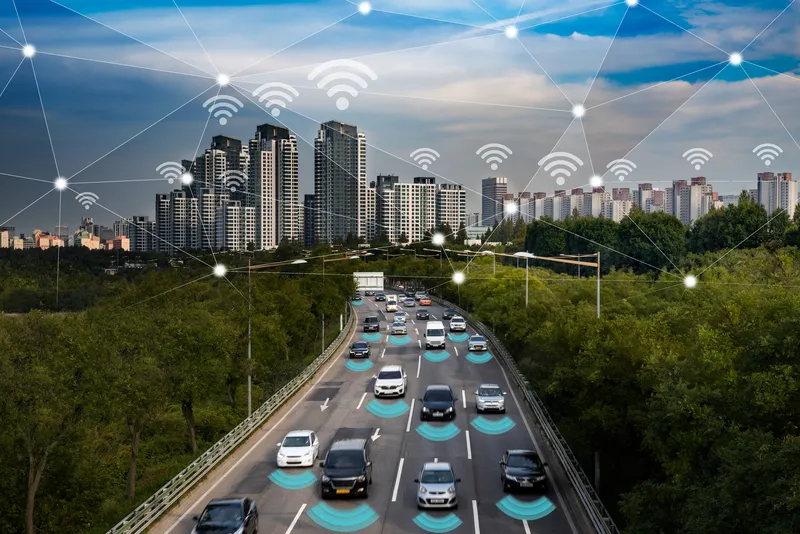As the freight industry leaves behind traditional brokering practices to adopt digital and automated platforms, the connected truck telematics market is going through a period of intense evolution, according to the latest research from Frost & Sullivan. It claims digital freight matching solutions will bring about visibility in a disparate landscape, give rise to a truck-as-a-service (TaaS) business model and drive numerous partnerships. It is vital to be aware of key market developments, prime movers, and
February 22, 2017
Read time: 2 mins
As the freight industry leaves behind traditional brokering practices to adopt digital and automated platforms, the connected truck telematics market is going through a period of intense evolution, according to the latest research from 2097 Frost & Sullivan. It claims digital freight matching solutions will bring about visibility in a disparate landscape, give rise to a truck-as-a-service (TaaS) business model and drive numerous partnerships. It is vital to be aware of key market developments, prime movers, and the opportunities available to connected truck vendors in the original equipment (OE) and aftermarket.
Several maintenance management, compliance and safety solution providers have successfully ventured into core telematics to create a niche. Fleet management system providers will gradually evolve into one-stop solution providers of freight matching, video safety, tolling, fuel management, weigh-station bypass, and truck-stop solutions through alliances with digital solution vendors.
“While on-demand freight matching apps will disrupt the freight industry, apps with smaller revenue potential will offer efficiency, convenience and visibility to all industry stakeholders,” said Frost & Sullivan mobility research analyst Gokulnath Raghavan. “Freight mobility apps are adding driver utility and fleet optimisation features to increase traffic to freight-matching platforms. Consolidation and partnerships are expected to become common among app providers.”
The report, Global Connected Truck Telematics Outlook, 2017, indicates that by 2025, globally 63.5 million trucks will be connected. Emerging markets such as China and India will record a high telematics growth rate in 2017, closely followed by Southern Europe and North America.
The market is inundated with innovations, and many start-ups are targeting their R&D efforts at resolving the issue of under-utilised truck capacity. Following the resolution of this challenge, telematics can efficiently connect shippers and carriers based on real-time location and load capacity status of trucks.
“Applying open platform technology, an upshot of autonomous mobility trials, easier access to smartphones and cutting-edge technology will be the key drivers for the connected truck network in 2017,” noted Raghavan. “The growing importance of telematics and digital solutions will eventually change OEMs’ focus from truck-as-a-product to TaaS.”
Several maintenance management, compliance and safety solution providers have successfully ventured into core telematics to create a niche. Fleet management system providers will gradually evolve into one-stop solution providers of freight matching, video safety, tolling, fuel management, weigh-station bypass, and truck-stop solutions through alliances with digital solution vendors.
“While on-demand freight matching apps will disrupt the freight industry, apps with smaller revenue potential will offer efficiency, convenience and visibility to all industry stakeholders,” said Frost & Sullivan mobility research analyst Gokulnath Raghavan. “Freight mobility apps are adding driver utility and fleet optimisation features to increase traffic to freight-matching platforms. Consolidation and partnerships are expected to become common among app providers.”
The report, Global Connected Truck Telematics Outlook, 2017, indicates that by 2025, globally 63.5 million trucks will be connected. Emerging markets such as China and India will record a high telematics growth rate in 2017, closely followed by Southern Europe and North America.
The market is inundated with innovations, and many start-ups are targeting their R&D efforts at resolving the issue of under-utilised truck capacity. Following the resolution of this challenge, telematics can efficiently connect shippers and carriers based on real-time location and load capacity status of trucks.
“Applying open platform technology, an upshot of autonomous mobility trials, easier access to smartphones and cutting-edge technology will be the key drivers for the connected truck network in 2017,” noted Raghavan. “The growing importance of telematics and digital solutions will eventually change OEMs’ focus from truck-as-a-product to TaaS.”









